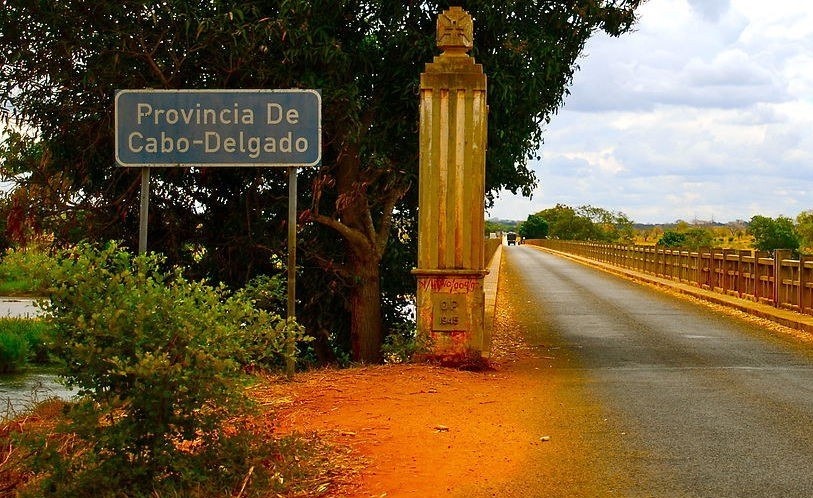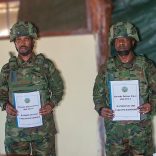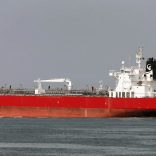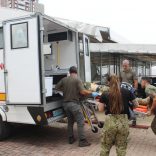Maj Gen Emmy Ruvusha hands over command responsibilities of Rwanda Security Forces in Cabo Delgado
Cabo Delgado: Terrorist groups fuelled by internal factors – analyst

File photo: O País
Mozambican academic Salvador Forquilha said yesterday that the group of terrorists responsible for violent attacks in the Cabo Delgado region, northern Mozambique, is complex in origin, and fuelled by internal factors, mainly ethnic and social.
“The insurgency is fuelled by multiple cleavages of ethnic, historical, social and political origin,” the director and senior researcher at the Institute of Economic and Social Studies (IESE) said in Maputo during a webinar promoted by the Royal Institute of International Relations – Chatham House entitled “Finding Solutions to Insecurity in Cabo Delgado”.
ALSO READ: Watch: Finding solutions to insecurity in Cabo Delgado – Chatham House
Cabo Delgado, where Africa’s largest private natural gas extraction investments are taking place, has been under attack since October 2017 by insurgents, classified since the beginning of the year by Mozambican and international authorities as a terrorist threat.
In two-and-a-half years of conflict, it is estimated that at least 600 people have died and about 200,000 forced to flee in search of safety.
Forquilha criticised the Mozambican authorities for favouring a foreign origin theory involving Islamic extremists linked to the Islamic State group, when “Information on the ground suggests that the development of the insurgency in Cabo Delgado was fuelled by internal factors to a considerable extent”.
Forquilha said he was involved in two studies which looked at the situation in Cabo Delgado, one on the conflict and development challenges in northern Mozambique and the other on social cohesion and political violence.
He discovered that an initially isolated and poorly organised phenomenon had taken root among population groups marginalised by the state, especially young people and more conservative Muslims.
“The discourse of opposition to the established order works to accelerate social discontent and radicalise political and social cleavages,” he explained, adding that “the insurgents managed to establish an efficient network of logistical and information support” thanks to young people integrated in the local communities.
Information gathered on the movement of the various security forces active in the region gave the rebels greater mobility and efficiency in military operations, he explained, warning of the need to prevent the conflict from intensifying and spreading to other provinces in northern Mozambique.
Speaking at the same seminar, Pedro Esteves, a Lisbon-based security expert and analyst at Africa Monitor, suggested that one short-term solution could be the creation of a regional military alliance, namely with Zimbabwe, and eventually with the support of South Africa and Angola.
However, he stressed, these last two countries “could support a regional force in Mozambique, but there is a difference between political support and military means”.
The other possibility is a greater intervention by the Mozambican military forces, despite the “lack of motivation, organisation, capabilities and resources” that has created space for the intervention of private military companies in the region.
“There is discontent among the military because of the way in which the conflict has been approached by the police. They feel that they are being subordinated, and this exacerbates the lack of coordination and morale. Any short-term solution will need a military with will and capacity. President Nyusi has to resolve this soon,” Esteves said.












Leave a Reply
Be the First to Comment!
You must be logged in to post a comment.
You must be logged in to post a comment.